Evolution of Prescription Refills: From In-Person to Online ..
6 Min Read
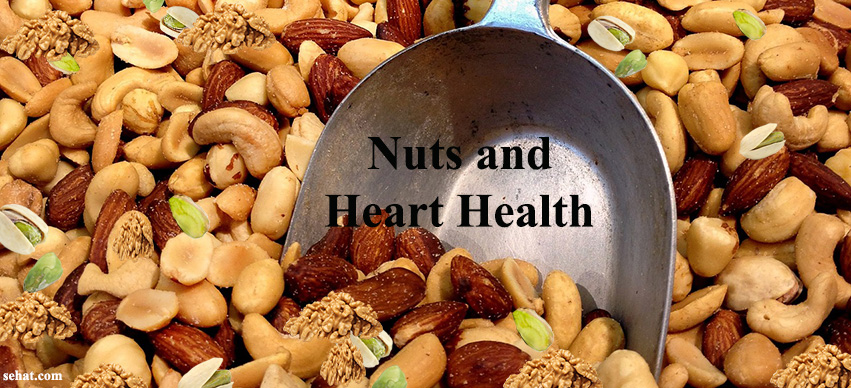
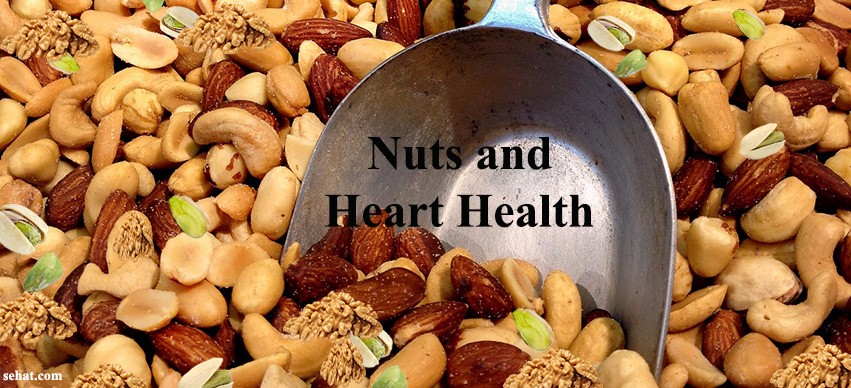
Well it, indeed, is - for eating nuts are responsible for resolving many of your health problems. People who eat nuts as part of a heart-healthy diet can lower the low-density lipoprotein (LDL) or "bad" cholesterol level in their blood. It is well known that high LDL is one of the main causes of heart disease. Besides being packed with protein, most of the nuts contain quite a few heart-healthy substances. Do you know why are nuts a heart healthy food? Eating nuts can reduce the risk of your developing blood clots that can lead to a fatal heart attack. Nuts also improve the health of the lining of your arteries.
Nuts are high in fat and calories, so while a handful can appease your hunger pangs, eating more than a handful can ruin your appetite totally. And though nuts are healthy when eaten naturally, they lose their advantage when eaten with sugary or salty toppings or mixes.
For many years, nuts were thought to be bad as they were high in fat. But in reality, nuts should form a vital part of our diet, as nuts and heart health are interrelated - they contain monounsaturated fats that help keep us heart-healthy and disease-free. Healthy nuts are also great sources of protein, minerals and other life-enhancing nutrients. Scientific studies now show that different types of nuts and seeds may support factors that help prevent heart disease, weight gain, and the accumulation of LDL cholesterol.
Eating nuts are good for the heart and can definitely be good for your health. Nuts, which contain unsaturated fatty acids and other nutrients, are a great as a snack too. Not only are they inexpensive, but easy to store and easy to carry wherever you go.
Many nuts are also rich in omega-3 fatty acids - Omega-3 are fatty acids that protect your heart by preventing them from heart attacks. Omega-3 fatty acids are also found in many kinds of fish, but nuts are one of the best plant-based sources of omega-3 fatty acids.
Nuts are a rich source of Vitamin E, which helps stop the development of plaques in your arteries, and prevents them from narrowing. Plaque development in the arteries can lead to chest pain, coronary artery disease, or a heart attack.
Nuts contain about 80% fat, but most of this fat is healthy fat. Though nuts contain healthy fat, they pack in a lot of calories and that's the reason why you should eat nuts in moderation. Nuts can be used as a substitute for saturated fats, such as those found in meat, eggs, and dairy products.
Best Nuts for Heart Health
While all nuts are healthy, concentrate on these 4 best nuts to provide you with all the goodness needed for heart health:
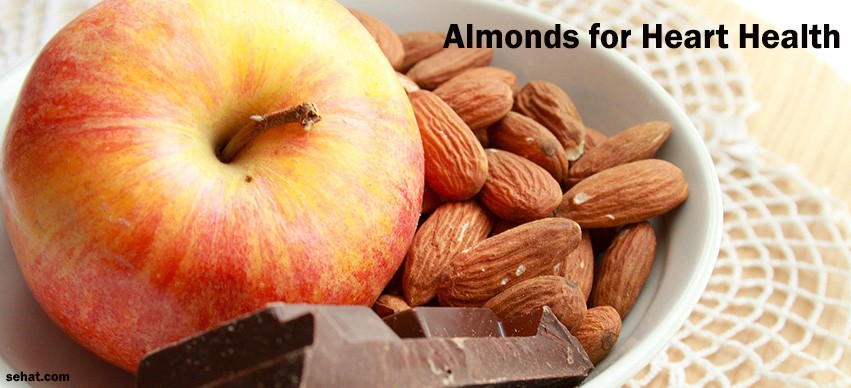
Eating almonds can reduce your LDL cholesterol, or bad cholesterol, which creates plaques in your coronary arteries and causes heart attacks. By eating more almonds, you can lower your LDL. Studies reveal that almonds reduce the risk of insulin resistance and diabetes. Even if you are a diabetic, adding almonds to your diet can improve your sensitivity to insulin.
Almonds also help you to lose weight and ensure that you have less belly fat and leg fat. Almonds help to lower body inflammation and help you stay trim by keeping your weight in check. A small handful of almonds give you almost 25% of your daily needs for magnesium and bone-strengthening calcium.
They are also high in antioxidants such as vitamin E and selenium. Studies show that almonds play an important role in preventing colon cancer due to their high fiber content. Almonds are good for heart health and helps lower negative forms of cholesterol in the blood stream.
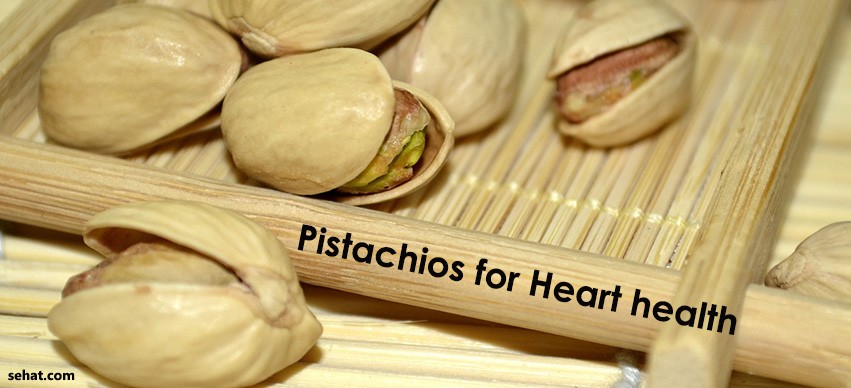
Adding pistachios to your daily diet is sure to give a heap of benefits that improves your heart. People who ate a few pistachios every day had lower blood pressure and were subject to lesser mental pressures when compared to those who did not eat pistachios. It was also seen that when diabetics ate pistachios, it lowered their total and LDL cholesterol and also reduced the risk of diabetes-related diseases in the arteries. Eating pistachios also lowers your blood pressure and cholesterol while it helps in lowering stress-induced high blood pressure. If you are under a lot of stress or are suffering from high blood pressure, pistachios could be an excellent option for you.
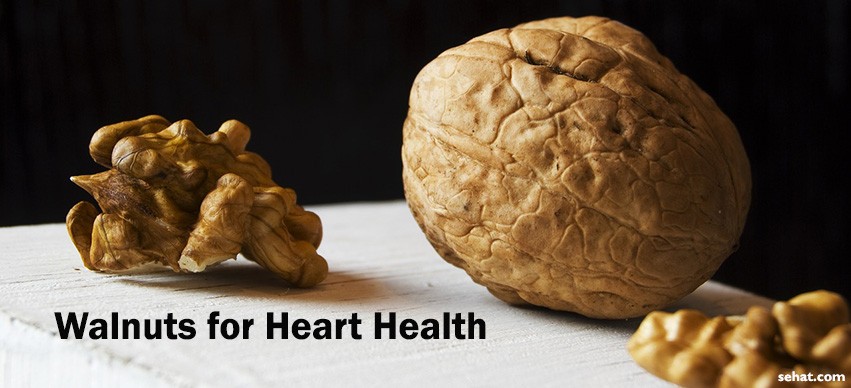
All nuts invariably contain a high concentration of healthy fats, but walnuts are composed of 47 percent polyunsaturated fatty acids which are called 'good fats'.
While almost all the nuts contain polyunsaturated fatty acids, walnuts are the only nuts that contain large amounts of alpha-linoleic acid. Alpha-linoleic acid is an anti-inflammatory agent that helps reduce plaque buildup in coronary arteries. Eating walnuts for heart health improves cholesterol levels and ensures proper functioning of the small arteries and vessels in the body. Consumption of walnuts reduces the level of apolipoprotein B, which is a strong genetic risk factor for coronary artery disease.
One of the best nuts on earth, walnuts may actually support your brain function. Studies show that consumption of walnuts is related to heart-health and better cognitive functions. Walnuts contain an antioxidant known as ellagic acid, which contain 16 disease-fighting polyphenols.
Peanut is not technically a nut, but a legume. Though the peanut is the poorer cousin of the almond and the walnut, studies show that peanuts can be just as healthy for the heart as other nuts. But, you should careful of food allergies when you consume peanuts. Moreover, peanuts have an additional risk of aflatoxin. This mold can cause liver disease or even lead to cancer, but this risk is manageable if you eat a moderate amount of peanuts.